Interview Practice & Training
starting at $65.00 USD
Let’s delve into the essential features of interview practice and training. Whether you’re a recruiter, hiring manager, or someone preparing for an interview, understanding these aspects can significantly enhance your interviewing skills:
-
Understanding the Role:
- Job Description Analysis: Begin by thoroughly examining the job posting or description. Understand the role, responsibilities, and qualifications required for the position. This knowledge will guide your interview approach.
-
Research and Preparation:
- Company Research: Investigate the company you’re interviewing with. Learn about their mission, values, culture, and recent achievements. This knowledge demonstrates your genuine interest and helps you tailor your responses.
- Connections: Leverage any professional connections you have within the organization. Insights from current employees can provide valuable information.
-
Interview Techniques and Communication Skills:
- Mock Interviews: Participate in mock interviews to simulate the real experience. Practice answering common questions, maintaining eye contact, and managing nerves.
- Psychology Principles: Understand basic psychology principles related to communication, body language, and rapport-building.
- Interview Checklists: Develop checklists to ensure you cover essential aspects during interviews. These can include probing questions, behavioral assessments, and evaluation criteria.
-
Question Types and Avoiding Biases:
- Appropriate Questions: Familiarize yourself with different question types (e.g., behavioral, situational, technical). Tailor your questions to the role you’re hiring for.
- Biases: Be aware of common biases (such as confirmation bias or halo effect) that can influence your judgment during interviews.
-
Role-Specific Training:
- Tailored Approach: Recognize that different roles require distinct interview techniques. For example, interviewing a software engineer differs from interviewing a sales representative.
- Industry-Specific Knowledge: If you’re hiring for a specialized field (e.g., healthcare, finance), understand relevant industry-specific aspects.
-
Feedback and Continuous Improvement:
- Feedback Loop: After conducting interviews, seek feedback from colleagues or mentors. Learn from each experience and refine your approach.
- Adaptability: Be open to adjusting your techniques based on feedback and changing circumstances.
Remember, interview training benefits both interviewers and candidates

